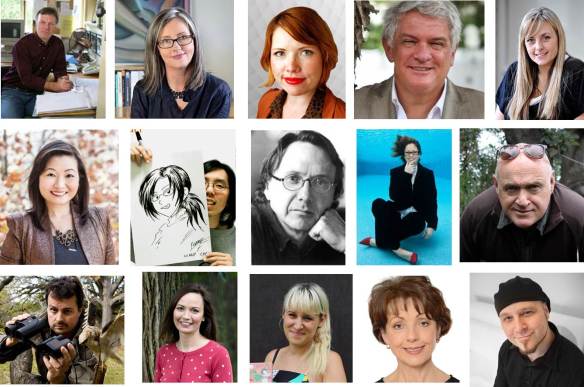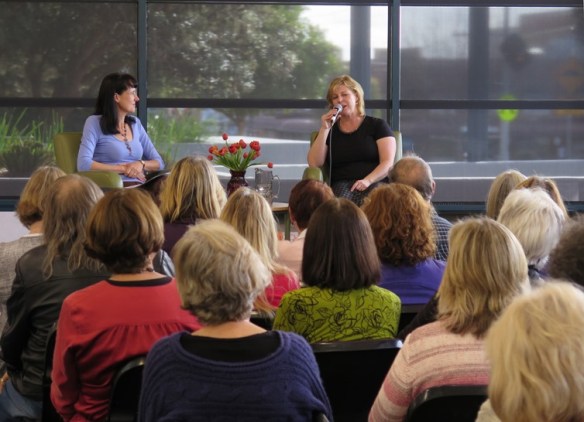So many times over the years since I was five years old, I have entered this iconic building: the State Library Victoria. Sometimes for work, or study, or just for the pure delight of standing in its gorgeous space surrounded by significant works expressed in books, art, and other media.

This time I returned for work and I felt fortunate to be selected for this unique training experience. Thirty-seven library staff from Victoria’s public libraries and the State Library were to deliberate on a topic. Led by the engagement professionals of Mosaic Lab, the old classroom model of teaching was abandoned and replaced by an interactive, collaborative, and inclusive method. All attendees were engaged fully. No one person could sit back and relax at the back of the room. The best thoughts were drawn out of each individual, then honed into a clear precise idea.
This style of training follows the International Association for Public Participation IAP2 model. It began with a warm-up one day practice session where the method was applied to real library world cases. Then we viewed a webinar to provide information about the deliberation sessions. An online forum placed on Loomio provided a platform for introductions, comments, and relevant reading materials.
The remit to be deliberated on was:
“What are the ten best ideas for engaging the community to design transformational library services?“
Day one involved some quick getting-to-know each other exercises, followed by some discussions to discuss the purpose, goals and rules of this deliberation. We looked at the reading materials once again and discussed one of the main current strategic documents on use at public libraries in Victoria: Victorian Public Libraries 2030 Strategic Framework. It was interesting to hear the comments from others who were new to this work. Written in 2012 from a huge collaborative brain storm effort towards future mapping, after only five years it is looking dated. Some scenarios have eventuated such as the rise of entrepreneaurship, and brain deterioration problems, while other scenarios have not yet come to pass in a significant way. Opening the doors to the community has brought a wide range of challenges that were unforeseen, and this is predominantly due to restricted and limited library spaces trying desperately to accomodate overwhelming and conflicting demands.
Five presenters were selected to provide further context, expert knowledge, and stimulation. These presenters were: Christine McKenzie, Municipal Association Victoria Executive Assistant for the Public Libraries Victoria Network, and International Federation of Library Associations President Elect; Karyn Siegmann, Manager Libraries at Bayside City Council, Chris Kelly, CEO at Goldfields Library Corporation, and two designers/architects with specialties in participatory design and human-centred design. These people offered five presentations and discussions to five groups, instead of one discourse to the whole. This enabled informal discussion and question time adding a depth of insight into the community engagement process.
After lunch we began on the ideas. First we were allowed to write down our own ideas. Then we shared them with three others, discussing them all and agreeing to three or four of the best ideas from the group. These were offered to the whole group, arriving at a total of 21 ideas at the end of the day.
On the second day the ideas had been posted onto voting boards. Each person placed a vote against each idea. These votes provided a weight: ‘love it’, ‘like it’, ‘live with it’, ‘lament it’, and ‘loathe it’. The 80-20 rule applied so that any idea slipping below 20% was discarded. However it was checked first to ensure this assessment was right. A minority report could be submitted if there was strong enough sentiment by anyone.
On first count four ideas were discarded because they fell below the line. Discussion ensued that some of the ideas were in fact similar or part of another idea. This resulted in matching that brought the total number of ideas to ten. Two of the most popular ideas absorbed two or three of the smaller ideas.
So with the valid ideas on the table we split into working group to flesh out and describe the ideas. I ended up working on an idea that I didn’t really like much or had much passion for, but that is part of this collaborative process and it is good to bring an impartial eye to the idea. We quickly listed the title, purpose, rationale and a couple of references for examples or similar ideas done elsewhere in the world. This was efficiently and quickly completed with 37 people working on ten separate sections of a live Google document.
We swapped blurbs with a nearby group giving feedback and opportunity to hone the description further. Then our two groups worked on the preamble for the whole document, a colleague quickly typing up an excellent introduction.
The finished document was then shown to the whole group on a large screen. We all had the opportunity to ‘red card’ an idea and give further feedback about any perceived flaws. This process was a lively debate that ultimately resulted in all ten ideas staying fixed to the final report.
The finished report was printed and formally presented to the representatives from the State Library Victoria, Debra Rosenfeldt, Manager, Public Libraries and Community Engagement at State Library of Victoria, and Paula Kelly Paull, Manager Learning Communities at Hobsons Bay City Council and representative of the Live and Learn group of the SLV/ PLVN.
I left the State Library late on a Friday afternoon on the eve of the Queens Birthday long weekend. Wearily I walked along Swanson Street Melbourne towards Flinders Street Station, with the lively singing of soccer fans going to see Argentina play Brazil at the MCG.
Oh, and what were the ten best ideas for engaging the community to design transformational library services? Well I’m sure the report will be published and made available on the PLVN website soon.




